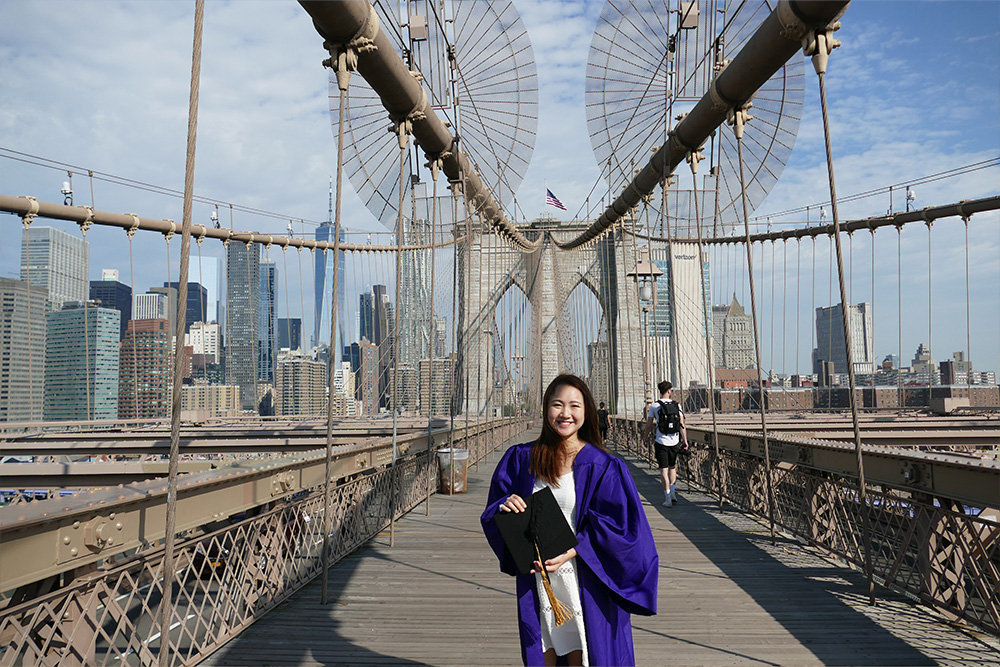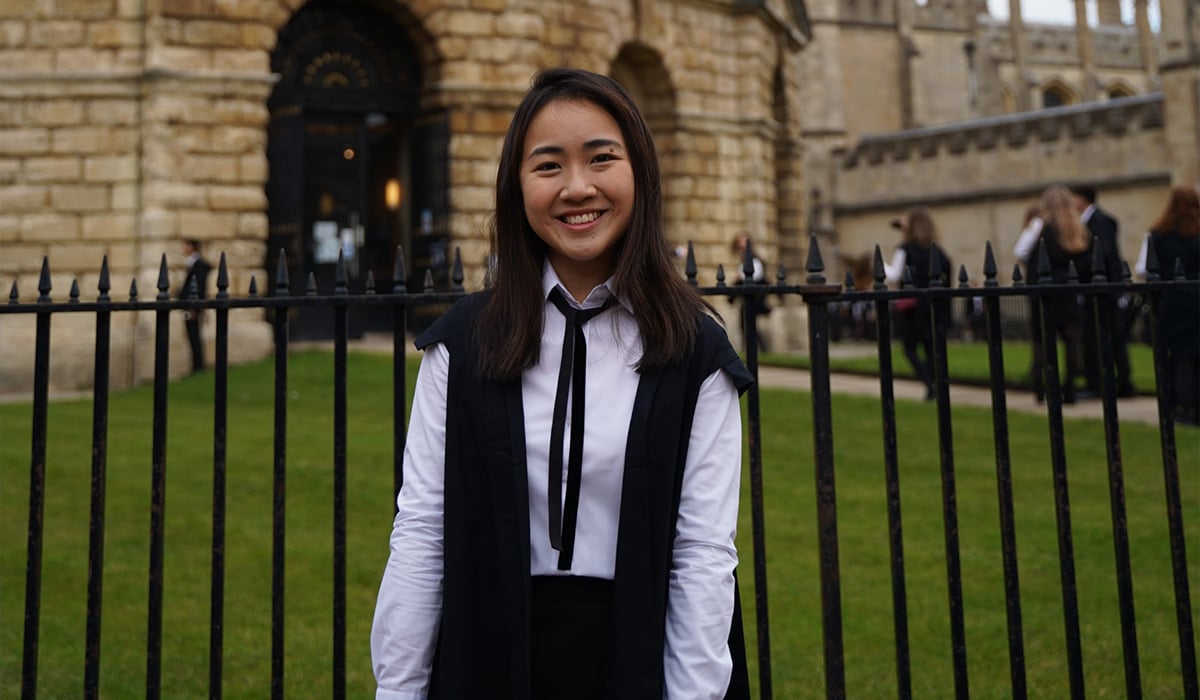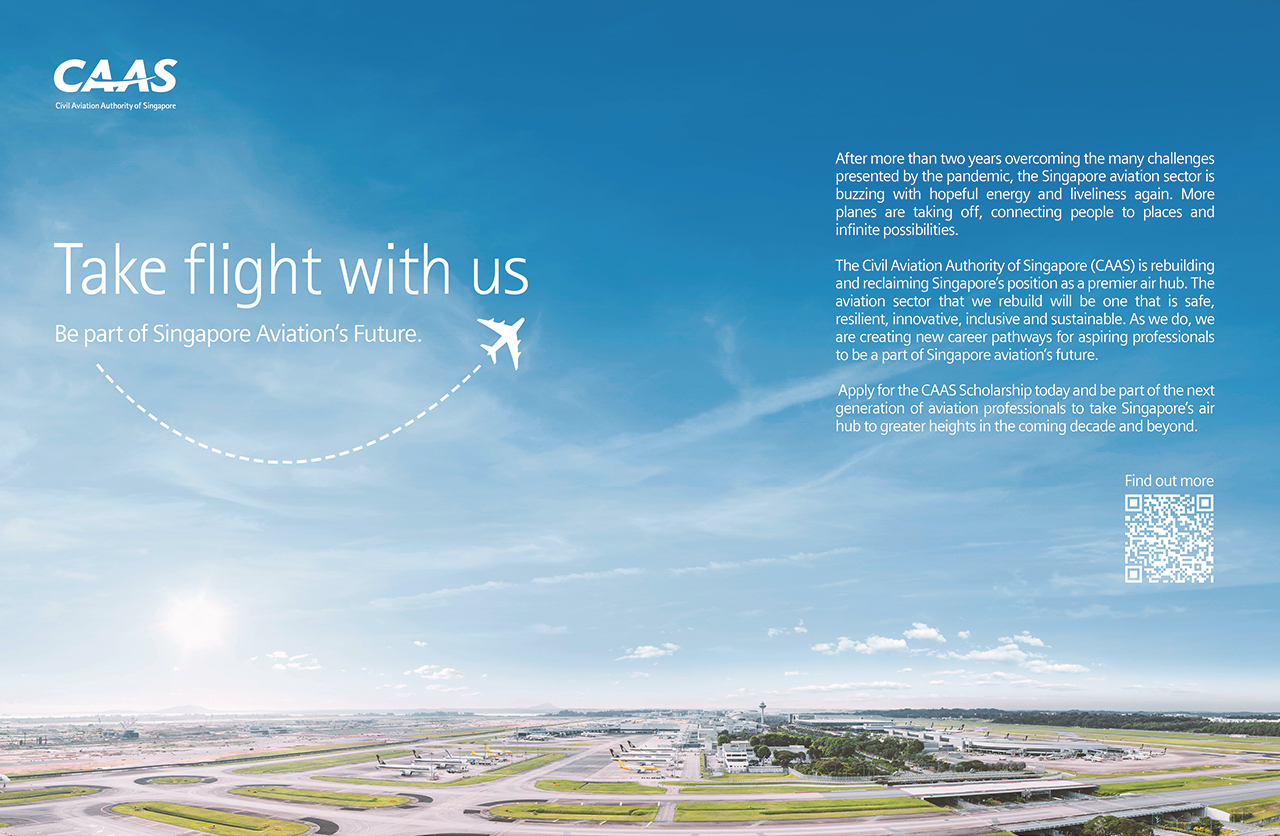Natalie Lim Xin Yi is a Deputy Manager (Regulatory Oversight) in the Unmanned Systems Policy and Regulations Division and is concurrently the Deputy Manager (Integration Office), under the Unmanned Systems Group. She is a recipient of the CAAS Overseas Undergraduate Scholarship and holds a Bachelor of Arts (Anthropology) from New York University and a Master of Sciences (Migration Studies) from the University of Oxford.
The Civil Aviation Authority of Singapore (CAAS) is a statutory board under the Ministry of Transport and its mission is to grow a safe, vibrant air hub and civil aviation system, making a key contribution to Singapore’s success.
This is something that resonated deeply with CAAS Overseas Undergraduate Scholar Natalie Lim Xin Yi who graduated with a Bachelor of Arts from New York University and a Master of Sciences (Migration Studies) from the University of Oxford.
“Air travel is not just for leisure or business, but it possesses immense power in changing lives and livelihoods. Aviation is the key driver of global interconnection – the availability and expansion of travel and trade connections enabled by air transport networks are integral to the survival of many countries, and exceptionally so for Singapore,” she mused. It is no wonder that joining CAAS became her career choice!
Why did you choose aviation and how did you feel having to join CAAS during the pandemic?
I have always been fascinated by mobility and the movement of humans. Beyond that, the movement of ideas, technology, and culture has played an undeniable role in shaping Singapore and the world today. This is what first sparked my interest in aviation.
Aviation is not just about aircraft safety and airport operations. The invention of modern aviation was a key player in accelerating the compression of time and space across the globe, which fundamentally altered human mobility and life trajectories. How is it that an individual from one side of the world can dream of a life in a place halfway across the world? Our connection to the world has unlocked countless opportunities and possibilities. How do we continue building these networks and in a sustainable manner?
The mission of CAAS therefore aligned with my career aspiration. I also appreciated the diverse types of work at CAAS - policy work, international relations and air hub development.
I joined CAAS during the pandemic, which was a challenging and critical period for everyone. It was truly an all-hands-on-deck situation to help with the recovery of our air hub. I was extremely warmed by the teamwork and mutual support I witnessed amongst all the officers. To see our airport gradually returning to its full glory in a smooth and safe manner truly brought pride to all of us at CAAS!

Natalie Lim Xin Yi
You took up the CAAS Overseas Undergraduate Scholarship. How did it support you in your studies and career?
CAAS gave me the flexibility to pursue a Bachelor of Arts (Anthropology) and a Master of Sciences (Migration Studies), despite the “unconventional” nature of these fields of study. For non-specialist degrees like mine, it is less so the content but rather your attitude and the skills honed that will prove useful in your future work!
Opportunities abound for scholars to explore the diverse roles and responsibilities under CAAS. Through rotations to different divisions within CAAS and engagement in various fora and working groups – local and international, it allows me to amass a diverse set of skills and experiences which are valuable in solving problems in an increasingly complex and ambiguous world. CAAS is also devoted to charting my career path and providing guidance about my career aspirations through one-on-one sessions with senior management.
Could you share with us how your university education has prepared you for your work in CAAS?
Anthropology is a study that focuses on the individual lived experience. It requires one to investigate and interpret data through close interaction and patient sense-making, to question all assumptions and challenge conventional norms of practice and thinking. As part of the public service, we are constantly striving to serve our citizens better. How can we formulate policies without understanding the experience of our target audience?
When I first joined CAAS, I was involved in operational work which required me to work with operators and members of the public and understand the challenges faced when navigating the regulatory regime of Unmanned Aerial Systems (UAS) in Singapore. Thinking about the future of drones here, it allows me to empathise with the operators and have a wider appreciation towards formulating policies that are unique to Singapore’s operating conditions.
Tell us more about your current role in CAAS. What are some of the challenges you face at work?
I am part of the Advanced Air Mobility (AAM) project team to co-develop domestic commercial trials involving eVTOL (Electric Vertical Take-off and Landing) vehicles that will begin with manned operations but with the eventual goal of being fully unmanned. It is a large project that requires a whole-of-government approach as it impacts many agencies, and collaboration is key to get the project off the ground.
I am also involved in the regulation and policy development for unmanned aircraft (drones). Unmanned aircraft has been evolving at a much faster pace with new variations and use cases, compounded by the rapid increase in volume and scale which poses a different set of regulatory challenges to manned aircraft.
Due to its novelty, members of public may not be as comfortable or conditioned to the presence of unmanned aircraft and often view it as a threat. Concerns of privacy and safety will have to be addressed in an empathetic and comprehensive manner if we eventually live in a world where we see and interact with drones in our day-to-day life!
What are your future career goals?
My career goal is to contribute to the rebuilding of the Changi air hub - one that is safe and more sustainable as well as to drive the transformation of the aviation sector to establish Singapore as the global aviation hub of choice.



